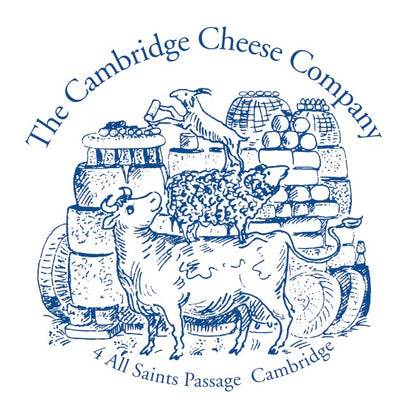The inspiration for producing a nettle covered cheese came from Alan and Jenny Grey in 1984, when they discovered a recipe for one in their attic that dated back to 1615. When searching for a name for their cheese, they settled on their surname, spelled backwards - Yarg, rather than Gray.
The Grays sold the recipe to Mike and Margaret Horrell, two farmers on the Duchy of Cornwall Estate, and in 1995, they requested the help of Catherine Mead, a dairy business consultant who had just returned to her family farm near Ponsanooth. The cheese was produced for a while across both the Horrell’s and Catherine’s farms but Catherine took over fully when the Horrells retired in 2006.
Cornish Yarg cheeses are covered in foraged nettle leaves, which are picked by over 20 people between the months of May and July. Each leaf is first dipped in citric acid and then frozen so that they can retain their vivid colour and be thawed when needed.
The milk for Cornish Yarg comes from just down the road from Lynher Dairies where the cheese is made. The free ranging, pasture fed pedigree Ayreshire cows eat nutrient rich grass and white clover and produce a wonderful milk. The cows eat 80% grazed grassland and 20% conserved forage. They graze for 70% of the year and spend 30% inside on sea sand. The sand is extremely comfortable for the cows to lie on and the salt in the sand is naturally antibacterial. In the spring, the sand is sprayed onto the fields and keeps the ph of the soil high.
The carbon footprint of free range cows is significantly lower than their barn kept counterparts. Less food has to be grown for them and there are very few food miles involved, when even their winter feed is home grown.
Lynher Dairies forage for their nettles and wild garlic locally. They have not turned any wild land into arable land for this purpose. They also have eco hives across the local area, which are occupied by native black bees, who pollinate the surrounding area, and the dairy works with Working Woodlands Cornwall to ensure that all nature thrives.
The dairy have solar panels across their roofs to help power the site, Any electricity bought is also 100% renewable.


